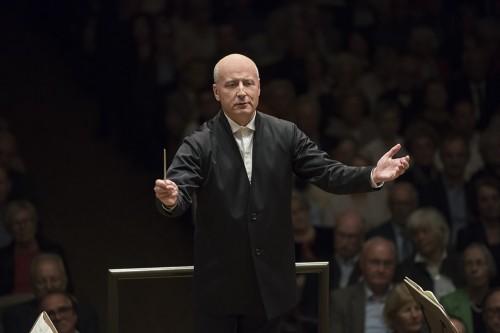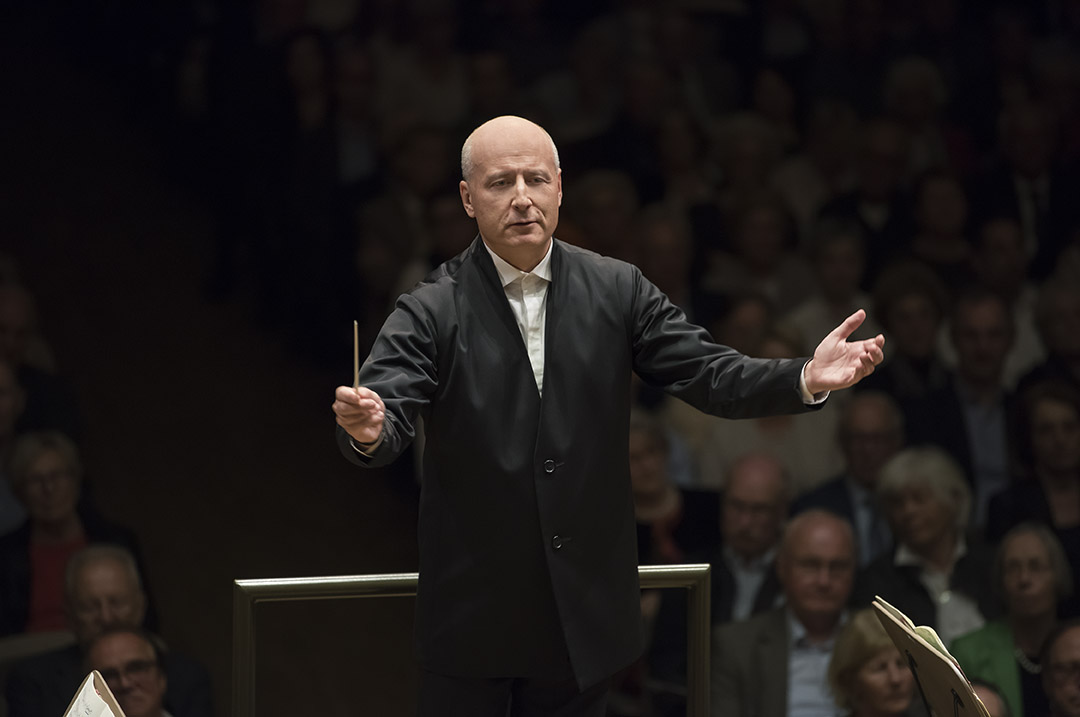 Switzerland Messaien, Mozart, Beethoven: Janine Jansen (violin), Tonhalle Orchester Zurich / Paavo Järvi (conductor), Tonhalle Maag, Zurich 18.1.2019. (JR)
Switzerland Messaien, Mozart, Beethoven: Janine Jansen (violin), Tonhalle Orchester Zurich / Paavo Järvi (conductor), Tonhalle Maag, Zurich 18.1.2019. (JR)

Messaien – Les Offrandes oubliées (Méditation symphonique); Le Tombeau resplendissent
Mozart – Violin Concerto No.5 in A major K.219
Beethoven – Symphony No.1 Op.21
In his post-concert talk, Paavo Järvi said that, like most of us, he feared for the very future of classical music unless programmes got more exciting. ‘Spicy’ is the word he actually used. Conservative Zurichers have been weaned on a rather safe, bland diet of Mozart, Beethoven and Brahms (with some fine Mahler, I admit) under David Zinman, some Ravel and Stravinsky under Bringuier, but now they are likely to be fed music altogether new to their ears. Järvi gave a short list of what they could expect: in addition to more traditional fare such as Bruckner, Shostakovich and Sibelius, some Martinů, Pärt and Tubin. He also pronounced his liking for French music such as Dutilleux and, above all, Messiaen (he was for years Chief Conductor of the Orchestre de Paris).
Two of Messaien’s works I did not know were included in this programme, both written in the composer’s early twenties. Messiaen was a devout Catholic and said he intended through his music to reveal the truths of his faith and mystical convictions. Les Offrandes oubliées (or ‘The Forgotten Offerings’) is a prayer to Jesus, starting with a sorrowful lament, in which we immediately recognize Messaien’s world of sound. Then follows an impressively ferocious section, quite brief (the whole piece is only 12 minutes long), followed by the quietest of endings. Järvi and the orchestra froze at the end, so we could all take a deep breath. It was well received.
After that, the Mozart seemed rather dull (I am not one of those who thinks that every note Mozart wrote is a wonder). The first two movements were decidedly humdrum, whilst the final movement is an undoubted and popular masterpiece. It was marvelously played by Jansen, often with the lightest of touches. The orchestra enjoyed their contribution, especially in the ‘Turkish’ (or ‘Hungarian’) episode where the string players strike the strings with the wood of their bow. A cool Bach encore followed.
After the interval, more Messaien: Le Tombeau resplendissent (or ‘The Resplendent Tomb’) has a curious history. It had its first performance under Pierre Monteux in 1933, when it was well received. Messiaen, however, discouraged further performances, perhaps feeling it was too similar to Les Offrandes oubliées (which indeed it is). The work was then effectively forgotten until the 1980s and only published in 1997. After a wild start, the piece is becalmed and the ending, after a second noisy climax, is a glory – a long transcendental coda played by celli and violas in unison. Järvi quite rightly had those two sections stand first to receive the audience’s warm applause.
Järvi has recorded the Beethoven symphonies with one of his other orchestras, the Deutsche Kammerphilharmonie Bremen, to considerable acclaim. He knows the Tonhalle Orchestra are not novices in the classical repertoire, which he said gave him a very good start. However, Järvi also introduced many of his own insights into the work, with some substantial nods to historic performance, albeit played by an orchestra with modern instruments. Although vibrato was not castigated, Järvi reminded me at times of the less quirky podium antics of Sir Roger Norrington, and the performance had much of that maestro’s spirit and sparkle. Järvi brought out the youthful joy of the work, which must have been quite a shock to the system of the audience back in 1800, weaned as they had been on Mozart and Haydn. After an effervescent opening movement, Järvi swayed elegantly through the Andante cantabile con moto, and delivered an enthusiastic and exciting Menuet. After perfect control of the dynamics in the opening bars, the final movement was a joy to listen to – and watch, as Järvi bobbed up and down to the amusement of many in the audience.
It was evident that the orchestra and the audience have already taken Järvi to their heart. It is rather like the change of a manager of a football team – after a string of indifferent matches and results, a new manager is brought in and suddenly the players look like they are enjoying the game again – and winning. After twenty years of solid Zinman (the latter years were becoming stodgy despite some fine Mahler), and after a hiccough in the form of an inexperienced Bringuier, the orchestra is now, without any shadow of doubt, in the safest of hands. It’s not yet the official honeymoon (Järvi officially starts his tenure at the start of next season), but there is some serious dating going on. Järvi and the orchestra have just returned from a 10-concert tour of Asia, which Järvi described as an excellent chance to get to know his new musicians personally and a wonderful team-building exercise. There is now a good degree of trust and friendship between him and the players, and this was equally palpable, audible and visible in this fine performance – it augurs very well for the future. As the chief music critic of the Neue Zürcher Zeitung wrote, after a review gushing in praise: ‘so darf es weiter gehen’ (‘keep up the good work’).
Järvi returns in mid-April with a mouth-watering programme: Beethoven’s Fourth symphony, his Third Piano Concerto (with Arcadi Volodos) and more spice in the form of Messiaen’s L’Ascension which he described as the composer’s masterpiece.
John Rhodes
